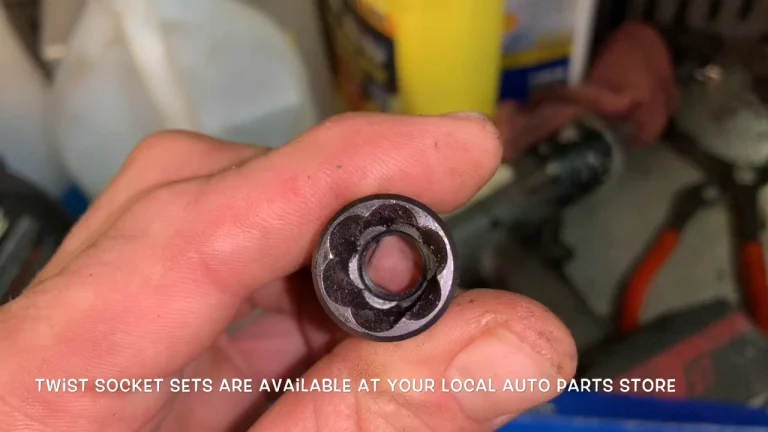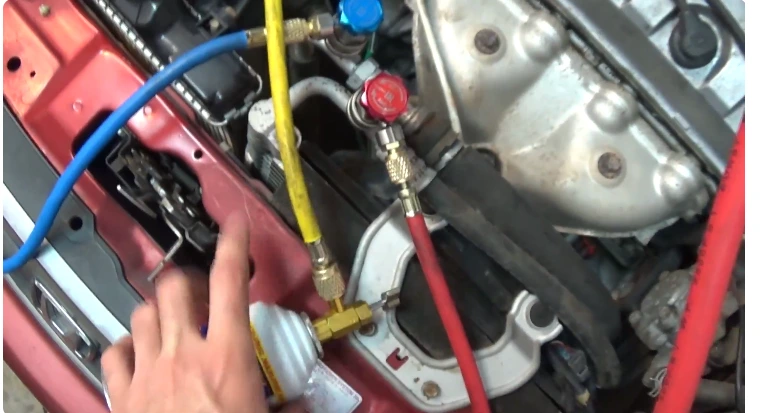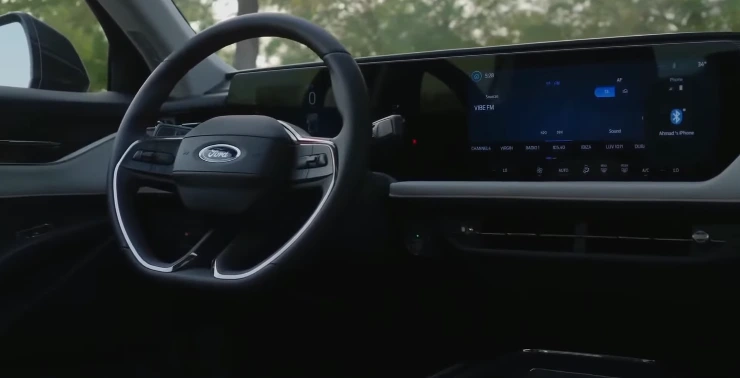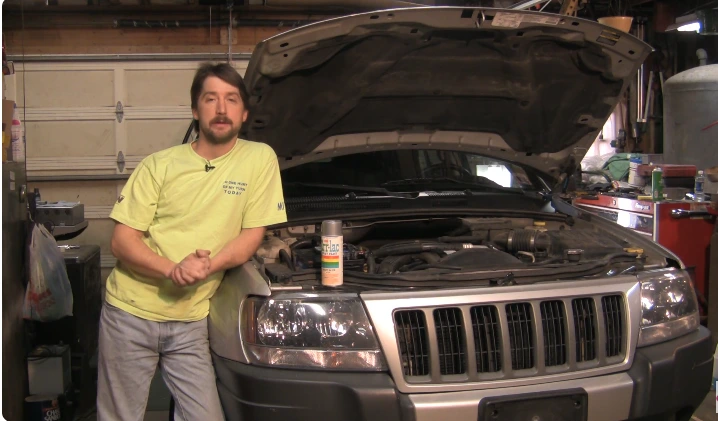Tips For Buying A Car [Ultimate Guide To Smart Purchases]
Top tips for buying a car: research the market thoroughly and set a budget to find the right car that meets your needs and fits within your financial means. When it comes to buying a car, it is essential to do your homework and consider factors such as the car’s history, reliability, fuel efficiency, and resale value.
Additionally, consider getting a pre-purchase inspection and take the car for a test drive before making a decision. Moreover, negotiate the price effectively and explore financing options before signing any contracts. Take your time throughout the process and don’t rush into a purchase – remember that patience is key when buying a car.
In today’s fast-paced world, owning a car has become a necessity for many people. Whether you need a vehicle for commuting to work, running errands, or road trips, purchasing a car requires careful consideration and planning. With so many car options available in the market, it’s crucial to know the top tips for buying a car to make an informed decision and get the best value for your money. We will discuss key factors to keep in mind when purchasing a car, including conducting thorough research, setting a budget, considering the car’s history and reliability, test driving the vehicle, negotiating the price, and exploring financing options. By following these tips, you can make your car-buying experience stress-free and enjoyable.
Researching Car Models
Choose A Car That Suits Your Lifestyle And Needs
When it comes to buying a car, the first and most crucial step is to choose a car that suits your lifestyle and needs. Here are some key points to consider:
- Determine your budget: Before you start researching car models, it’s important to establish your budget. This will help narrow down your options and ensure you don’t overspend.
- Consider your transportation needs: Are you looking for a compact car for city driving or a spacious suv for family trips? Think about your daily routine and the purpose of the car to determine the body type and size that will meet your requirements.
- Evaluate your lifestyle: If you frequently travel long distances, you may want to consider a car with good fuel efficiency. On the other hand, if you enjoy off-road adventures, a 4×4 might be more suitable.
- Think about technology and features: Modern cars come equipped with various advanced features such as touchscreen displays, bluetooth connectivity, and driver-assistance systems. Assess which features are essential for you and prioritize accordingly.
Compare Different Car Models For Their Features And Specifications
Once you have an idea of the type of car that suits your lifestyle, it’s time to compare different car models for their features and specifications. Here are some points to keep in mind:
- Research online: Visit manufacturer websites, read car reviews, and browse online forums to gather information about different car models. Look for features like safety ratings, entertainment options, storage capacity, and seating configurations.
- Visit local dealerships: Take a trip to local dealerships to see the car models in person. Sit inside, get a feel for the interior space, and ask the sales representative about specific features and specifications.
- Test drive potential options: A test drive is an important step to truly understand how a car performs on the road. Pay attention to the acceleration, braking, handling, and overall comfort.
- Compare prices: Compare the prices of different car models to ensure you’re getting the best deal. Don’t forget to consider additional costs such as insurance, maintenance, and fuel consumption.
Consider The Reliability, Safety, And Fuel Efficiency Of Each Model
When choosing a car, it’s crucial to consider its reliability, safety features, and fuel efficiency. Here’s what you should focus on:
- Reliability: Look for car models known for their reliability and durability. Check customer reviews and ratings to get an idea of how reliable a particular model is.
- Safety features: Safety should be a top priority when buying a car. Look for features such as advanced braking systems, lane departure warning, blind-spot monitoring, and airbag systems.
- Fuel efficiency: With rising fuel costs and environmental concerns, fuel efficiency is an important factor. Check the fuel economy ratings of different car models to find one that aligns with your needs.
Remember, researching car models thoroughly before making a purchase is essential to ensure you find the perfect car that meets your lifestyle, needs, and budget. Take your time, compare options, and make an informed decision that you’ll be satisfied with for years to come.
Evaluating Your Budget
Determine How Much You Can Afford To Spend On A Car
Before embarking on the car buying journey, it’s crucial to determine how much you can realistically afford to spend. Here are some key points to consider:
- Assess your current financial situation: Take a close look at your income, expenses, and overall financial health. Consider factors such as your monthly income, existing debt obligations, and future financial goals.
- Set a budget: Based on your financial assessment, set a realistic budget for purchasing a car. This will help you narrow down options and prevent overspending.
- Consider down payment: Determine if you can afford a down payment. Keep in mind that a larger down payment can lower your monthly payments and overall interest costs.
- Factor in monthly expenses: Beyond the purchase price, consider the ongoing expenses of owning a car such as fuel, insurance, maintenance, and parking fees. Make sure to include these costs in your budget calculations.
Consider The Overall Cost Of Ownership, Including Insurance And Maintenance
Buying a car involves more than just the upfront cost. It’s crucial to consider the long-term cost of ownership. Here are some key points to keep in mind:
- Research insurance costs: Different cars have varying insurance premiums. Consider obtaining insurance quotes for different models to understand the potential insurance costs involved.
- Evaluate maintenance expenses: Research the typical maintenance costs for the make and model you’re interested in. Certain brands and models may have higher maintenance costs due to specialized parts or labor.
- Check fuel efficiency: Take into account the fuel efficiency of the cars you’re considering. A more fuel-efficient car can save you money in the long run.
- Depreciation: Keep in mind that cars depreciate in value over time. Consider the potential resale value of the car and factor it into your decision-making process.
Explore Financing Options And Calculate Monthly Payments
For many car buyers, financing plays a crucial role in the purchasing process. Here are some key points to consider:
- Assess your credit score: Your credit score will impact the financing options available to you. The higher your credit score, the better interest rates and loan terms you may qualify for.
- Research financing alternatives: Explore different financing options such as bank loans, credit unions, or dealership financing. Compare interest rates and loan terms to find the most suitable option.
- Calculate monthly payments: Use online calculators or consult with a loan officer to determine the estimated monthly payments based on the loan amount, interest rate, and loan term. Ensure the payments fit within your budget.
Remember, understanding your budget and evaluating the overall cost of car ownership are essential steps in making an informed car purchase. By doing your due diligence, you’ll be on the right track to finding the perfect car that aligns with your financial situation and needs.
Checking Vehicle History And Condition
When it comes to buying a car, one of the most crucial steps is to ensure you thoroughly check the vehicle’s history and condition. This will help you avoid any potential issues or surprises down the line. Here are some top tips to guide you in this process:
Look For A Reliable Source To Check The Vehicle’S History
- Obtain the vehicle identification number (vin) from the seller and use it to check the vehicle’s history report.
- Several online platforms provide comprehensive vehicle history reports, such as carfax and autocheck, which can reveal vital information about the car’s past, including accidents, title status, mileage discrepancies, and more.
- Pay attention to any red flags in the history report, such as frequent repairs, flood damage, or a salvage title.
Inspect The Car Thoroughly For Any Signs Of Damage Or Mechanical Issues
- Begin by examining the exterior of the vehicle. Look for any dents, scratches, or inconsistencies in the paint job. Such signs may indicate previous accidents or poor maintenance.
- Inspect the tires closely for tread wear patterns, as uneven wear could suggest problems with alignment or suspension.
- Open and close all doors, trunk, and hood to ensure they operate smoothly and without any resistance.
- Check all lights and signals to ensure they are functioning correctly.
- Take note of any unusual odors inside the car, as they could indicate mold, mildew, or other issues.
Consider Getting A Professional Inspection Before Making A Purchase
- Hiring a qualified mechanic to inspect the car thoroughly is highly recommended, especially if you lack automotive knowledge. They can identify any potential mechanical issues that may not be immediately apparent.
- A professional inspection can provide you with peace of mind and help you negotiate a fair price if any repairs are necessary.
- Tag along during the inspection and ask questions to gain a better understanding of the car’s overall condition and potential maintenance costs.
Remember, a careful examination of the vehicle’s history and thorough inspection can significantly impact your car-buying experience. By following these tips, you’ll be well-equipped to make an informed decision and find the perfect car that meets your needs without any unwanted surprises.
Test Driving And Negotiating
When it comes to buying a car, test driving and negotiating are two crucial steps in the process. Test driving allows you to assess the car’s performance and comfort, while negotiating ensures that you get the best deal possible. To make the most out of these steps, follow these top tips:
Schedule A Test Drive To Assess The Car’S Performance And Comfort
- Coordinate with the seller to schedule a test drive that suits both parties. This will give you the opportunity to experience how the car handles on the road and whether it meets your comfort requirements.
- During the test drive, pay attention to the car’s acceleration, braking, and steering. Test it on different types of roads such as highways, city streets, and uneven surfaces.
- Evaluate the car’s comfort by checking the seating position, legroom, headroom, and general ergonomics. Take note of any discomfort or issues you might encounter.
- Test the car’s features and functions, such as the air conditioning, infotainment system, and safety features. Make sure they are in proper working condition.
Prepare A List Of Questions To Ask The Seller About The Car’S History And Condition
- Before meeting the seller, compile a list of questions to gather information about the car’s history and condition.
- Ask about the car’s mileage, service records, accidents, and any repairs or modifications done. This will give you a better understanding of the car’s overall condition and reliability.
- Inquire about the ownership history, as multiple previous owners may indicate potential issues.
- Request information about the car’s warranty, if any, and any remaining maintenance or repair needs.
- Don’t forget to ask about the reason for selling the car. This can provide insights into the seller’s urgency and potentially impact the negotiation process.
Negotiate The Price Based On The Market Value And Any Identified Issues
- Research the market value of the car you’re interested in before entering into negotiations. This will give you a benchmark to work from and ensure you are not overpaying.
- Consider any issues or drawbacks you identified during the test drive or through your questions. These can be used as leverage during negotiations to lower the price or request repairs.
- Be confident but reasonable in your negotiations. Start with a fair offer based on your research and adjust accordingly.
- Use any additional information or competing offers to your advantage during the negotiation process.
- Remember that negotiations are a two-way street. Be open to compromises and find a win-win situation for both parties involved.
By following these tips, you’ll be well-prepared to navigate the test driving and negotiating process when buying a car. Remember to trust your instincts and take your time making this important decision. Happy car hunting!
Financing And Insurance Options
Explore Different Financing Options Such As Loans And Leases
When it comes to buying a car, exploring different financing options is crucial. Here are some key points to consider:
- Loans: This traditional financing option allows you to borrow a specific amount from a lender and repay it over a set period of time with interest. It’s important to research different lenders, compare interest rates, and terms to find the best loan option for your budget and credit score.
- Leases: Leasing a car involves making monthly payments to use the vehicle for a predetermined period, typically two to four years. It can be an attractive option for those who prefer lower monthly payments and the ability to drive a new car regularly. However, it’s worth noting that you won’t own the vehicle at the end of the lease term.
- Down payments: Whether you choose a loan or a lease, it’s wise to save up for a down payment. A down payment reduces the amount you need to finance, resulting in lower monthly payments and potentially better loan terms.
- Consider your budget: Before making a decision, carefully evaluate your budget and ensure that your monthly payment is manageable. Take into account not only the cost of the financing but also other expenses like insurance, maintenance, and fuel.
Research Insurance Providers And Compare Coverage Options
Insurance is an essential aspect of car ownership. Before you make a decision, here are some key points to consider when researching insurance providers:
- Research multiple providers: Don’t settle for the first insurance company you come across. Take the time to research and obtain quotes from different providers. This will give you a better understanding of the coverage options available and allow you to find the best rates.
- Compare coverage options: Insurance policies can vary significantly in terms of coverage and cost. Compare the types of coverage offered, such as liability, collision, comprehensive, and medical payments. Consider your needs and preferences when selecting the right coverage for your car.
- Consider deductibles: Review the different deductibles offered by insurance providers. A deductible is the amount you’ll need to pay out of pocket in the event of a claim. Opting for a higher deductible can help lower your insurance premium, but make sure it’s an amount you can comfortably afford if needed.
- Read reviews and customer feedback: Take the time to read reviews and feedback from customers to get an idea of how each insurance provider handles claims, customer service, and overall satisfaction. This can give you valuable insights into the company’s reputation and reliability.
Understand The Terms And Conditions Of The Financing And Insurance Agreements
Before finalizing any financing or insurance agreement, it’s crucial to understand the terms and conditions. Here are a few key points to consider:
- Read the fine print: Take the time to thoroughly read and understand all the terms and conditions of the financing and insurance agreements. Pay close attention to details such as interest rates, fees, repayment terms, and any exclusions or limitations in the insurance policy.
- Seek clarifications: If you come across any confusing or unclear terms, don’t hesitate to seek clarifications from the lender or insurance provider. It’s better to have a clear understanding upfront rather than being surprised by unexpected charges or restrictions later on.
- Consult a professional if needed: If you find it challenging to understand the terms and conditions on your own, consider seeking advice from a financial advisor or insurance expert. They can help explain the finer details and guide you in making an informed decision.
- Keep copies of all agreements: Make sure to retain copies of all signed agreements, including the financing and insurance documents. These will serve as a reference in case of any discrepancies or issues that may arise in the future.
Taking the time to explore different financing options, research insurance providers, and understand the terms and conditions can ensure that you make a well-informed decision when buying a car. By following these tips, you’ll be better equipped to find the best financing and insurance options suited to your needs and budget.
Making The Purchase
So, you’ve done your research, taken test drives, and finally found the perfect car. Now comes the important step of making the purchase. Here are some top tips to consider when buying a car:
Review And Understand The Contract Before Signing
Before you put pen to paper, it’s crucial to review and fully understand the contract. Here are some key points to keep in mind:
- Read the contract thoroughly: Take your time to carefully read through each section of the contract to ensure you understand all the terms and conditions.
- Pay attention to the fine print: Look for any hidden fees, additional charges, or clauses that may affect your purchase. If something seems unclear, don’t hesitate to ask for clarification.
- Understand the warranty: Make sure you know what’s covered under the warranty and the duration of coverage. Take note of any limitations or exclusions.
- Negotiate if needed: If there are any points in the contract that you’re not comfortable with or would like to modify, don’t be afraid to negotiate with the seller. It’s always worth a try to reach a mutually beneficial agreement.
Ensure All Necessary Paperwork Is Completed Accurately
Proper documentation is essential when buying a car to protect yourself and ensure a smooth transaction. Here’s what you need to do:
- Double-check personal information: Make sure that all your personal details, such as your name, address, and identification numbers, are accurate and up-to-date.
- Verify vehicle information: Ensure that the vehicle identification number (vin), make, model, year, and other details match the car you’re purchasing.
- Obtain a bill of sale: This document serves as proof of purchase and includes details about the sale, such as the purchase price, date, and signatures of both parties.
- Transfer the title and registration: Familiarize yourself with the process of transferring the title and registration into your name, and ensure all necessary paperwork is completed correctly.
Consider Additional Warranties Or Protection Plans For Peace Of Mind
Buying a car is a significant investment, so it’s worth considering additional warranties or protection plans to safeguard your purchase. Here’s what you should think about:
- Extended warranties: These warranties provide coverage beyond the manufacturer’s warranty and can offer added protection against unexpected repairs.
- Maintenance plans: Consider purchasing a maintenance plan that covers routine services, such as oil changes and tire rotations, to save on future maintenance costs.
- Gap insurance: If you’re financing your car, gap insurance can protect you from owing more than the car’s actual cash value if it gets totaled or stolen.
- Paint and fabric protection: Some dealerships offer options for protecting your car’s paintwork and upholstery from damage, so consider whether these additional protections are worth the investment.
Remember, making the purchase is a big step, and it’s vital to proceed with caution and thoroughness. Review all contracts, ensure accurate paperwork, and consider additional warranties or protection plans to make your car buying experience a positive one.
Post-Purchase Considerations
Congratulations on your new car! Now that you’ve made the decision and completed the purchase, there are a few important considerations to keep in mind. Taking these steps will ensure you have a smooth and enjoyable ownership experience. Here are some post-purchase tips to help you make the most of your new vehicle:
Register The Car And Obtain Necessary Documentation
After buying your car, it’s essential to register it and obtain all the necessary documentation. This will ensure that you are legally allowed to drive the vehicle and that you have proof of ownership. Here are the key points to remember:
- Register the car with your local department of motor vehicles (dmv) or relevant authority.
- Complete all the required paperwork, including title transfer, vehicle registration, and emission certifications.
- Pay any applicable fees and taxes for the registration process.
Schedule Regular Maintenance And Follow The Manufacturer’S Recommendations
To keep your car running smoothly and maintain its longevity, it’s crucial to schedule regular maintenance and follow the manufacturer’s recommendations. This will help prevent costly repairs and extend the life of your vehicle. Consider the following points:
- Follow the recommended maintenance schedule provided by the manufacturer in the owner’s manual.
- Regularly change the engine oil, filters, and other fluids as per the recommended intervals.
- Pay attention to tire rotations, wheel alignments, and brake inspections to ensure optimal performance and safety.
Keep Track Of Any Recalls Or Safety Updates For Your Specific Car Model
Manufacturers occasionally issue recalls or safety updates for specific car models to address potential defects or safety concerns. It’s essential to stay informed about any recalls to ensure your vehicle remains safe on the road. Consider the following guidelines:
- Register your vehicle with the manufacturer to receive recall notifications directly.
- Keep an eye on reliable sources such as the national highway traffic safety administration (nhtsa) or the manufacturer’s website for any recalls or safety updates.
- Contact the manufacturer or a licensed dealer if you suspect any issues with your vehicle that might be related to a recall.
Remember, taking care of your car doesn’t end with the purchase. By registering the car, scheduling regular maintenance, and staying informed about recalls, you’ll not only ensure your vehicle’s longevity but also prioritize your safety on the road. Enjoy your new ride!
Conclusion
Buying a car can be an exciting yet daunting process. With these top tips in mind, you can navigate the car-buying journey with confidence and make a well-informed decision. First, determine your budget and stick to it. This will help narrow down your options and ensure you don’t overspend.
Next, do thorough research on the make and model you’re interested in, checking for reliability and customer reviews. Consider both new and used options, weighing the pros and cons of each. Before making a final decision, take the car for a test drive to ensure it meets your expectations and feels comfortable to drive.
Lastly, don’t forget to negotiate the price and consider additional costs such as insurance and maintenance. By following these tips, you’ll be well-equipped to find the perfect car that fits your needs and budget, making the entire process a smoother and more rewarding experience.



![What Does B Stand for in a Car? [Full Guide]](https://automhelp.com/wp-content/uploads/2024/05/What-Does-B-Stand-for-in-a-Car-768x512.webp)



